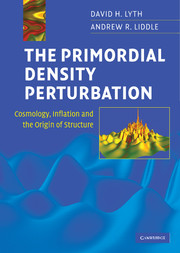1 - Overview
Published online by Cambridge University Press: 05 June 2012
Summary
Although cosmology can trace its beginnings back to Einstein's formulation of his general theory of relativity in 1915, which enabled the first mathematically consistent models of the Universe to be constructed, for most of the following century there was much uncertainty and debate about how to describe our Universe. Over those years the various necessary ingredients were introduced, such as the existence of dark matter, of the hot early phase of the Universe, of cosmological inflation, and eventually dark energy. In the latter part of the last century, cosmologists and their funding agencies came to realize the opportunity to deploy more ambitious observational programmes, both on the ground and on satellites, which began to bear fruit from 1990 onwards. The result is a golden age of cosmology, with the creation and observational verification of the first detailed models of our Universe, and an optimism that that description may survive far into the future. The objective, often described as precision cosmology, is to pin down the Universe's properties as best as possible, in many cases at the percent or few percent level. In particular, the landmark publication in 2003 of measurements of the cosmic microwave background by the Wilkinson Microwave Anisotropy probe (WMAP), seems certain to be identified as the moment when the Standard Cosmological Model became firmly established.
The key tool in understanding our Universe is the formation and evolution of structure in the Universe, from its early generation as the primordial density perturbation to its gravitational collapse to form galaxies.
- Type
- Chapter
- Information
- The Primordial Density PerturbationCosmology, Inflation and the Origin of Structure, pp. 1 - 4Publisher: Cambridge University PressPrint publication year: 2009



